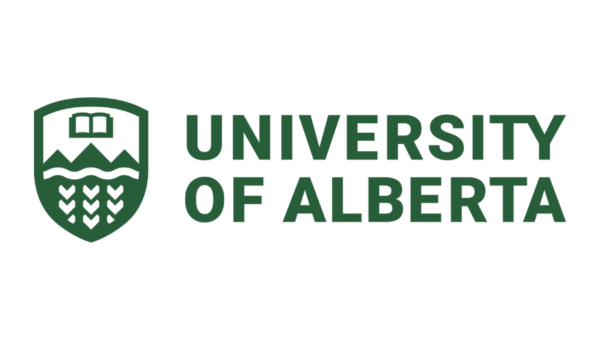
Assistant Professor (Tenure-Track) in Stem Cell Biology – University of Alberta
The Faculty of Medicine and Dentistry at the University of Alberta has an opening for an Assistant Professor (tenure-track) in stem cell biology focused on rare diseases affecting children.
The Position
The Department of Cell Biology and the Women and Children’s Health Research Institute (WCHRI)) at the University of Alberta are inviting applications for an Assistant Professor (tenure-track) position from individuals with evidence or promise of an innovative and independent research program in stem cell biology, especially as it relates to rare diseases affecting children. Applicants will have a Ph.D. and relevant post-doctoral experience studying topics that may include but are not limited to: the roles of stem cells in rare diseases using human induced pluripotent stem cells (iPSCs); organoids or other stem cell models; tissue-resident stem cells; transcriptional and epigenetic regulation of stem cell-mediated regeneration, pluripotency and reprogramming. We are especially interested in candidates applying a combination of cutting-edge approaches to stem cell models to gain insights into the fundamental cell biological mechanisms underlying diseases affecting children.
While the main focus of this position is research, this individual will be an active member in the research and undergraduate and graduate teaching programs in Cell Biology and an academic member of WCHRI. They will be part of an emerging research hub of multiple research laboratories in the area of Child Health and Regenerative Medicine (CHaRM) within WCHRI. Researchers in the CHaRM hub will be supported by a stem-cell culture facility including technical staff, to support WCHRI researchers in iPSC, adult and embryonic stem cell culture or differentiation and to serve as a resource for sharing cell lines and technology.
The University of Alberta is seeking applications from individuals with:
- A Ph.D. in Cell Biology or a related field with publications demonstrating expertise in stem cell biology.
- Relevant postdoctoral experience in working with stem cells as they relate to studying or treating human diseases, especially those affecting children.
- A plan to develop an independent academic research program related to rare diseases affecting children, or stem-cell based treatments for rare diseases affecting children.
The position will remain open until filled but review of the applications will begin February 23, 2024.
As part of the Temporary Foreign Worker Program requirements, the university must conduct recruitment efforts to hire Canadians and permanent residents before offering a job to a temporary foreign worker. To ensure we remain in compliance with these regulations, please include the appropriate statement in your application “I am a Canadian Citizen/Permanent Resident” or “I am not a Canadian Citizen/Permanent Resident”.
At the University of Alberta, we are committed to creating an inclusive and accessible hiring process for all candidates. If you require accommodations to participate in the interview process, please let us know at the time of booking your interview and we will make every effort to accommodate your needs.
All qualified candidates are encouraged to apply; however, Canadians and permanent residents will be given priority. If suitable Canadian citizens or permanent residents cannot be found, other individuals will be considered. The University of Alberta is committed to an equitable, diverse, and inclusive workforce. We welcome applications from all qualified persons. We encourage women; First Nations, Métis and Inuit persons; members of visible minority groups; persons with disabilities; persons of any sexual orientation or gender identity and expression; and all those who may contribute to the further diversification of ideas and the University to apply.
Working for the University of Alberta
The University of Alberta acknowledges that we are located on Treaty 6 territory, and respects the histories, languages and cultures of First Nations, Métis, Inuit and all First Peoples of Canada, whose presence continues to enrich our vibrant community.
The University of Alberta is teeming with change makers, community builders, and world shapers who lead with purpose each and every day. We are home to more than 40,000 students in 200+ undergraduate and 500+ graduate programs, over 13,000 faculty and staff, 260,000 alumni worldwide and have been recognized as one of Canada’s Greenest Employers for over a decade.
Your work will have a meaningful influence on a fascinating cross section of people—from our students and stakeholders, to our renowned researchers and innovators who are quite literally curing diseases, making discoveries and generating solutions that make the world healthier, safer, stronger, and more just.
Working in the Department of Cell Biology
The Department of Cell Biology is committed to research excellence in modern cell biology. Our faculty members also teach at the undergraduate, graduate and postgraduate levels to develop a new generation of exceptional investigators. The Department of Cell Biology is home to a diverse group of faculty members that are nationally and internationally recognized in multiple areas of experimental cell biology. The Faculty of Medicine & Dentistry (FoMD) comprises 21 departments, supported by 7 research institutes and 6 core facilities providing state-of-the-art research infrastructure and expertise, including world-class Flow Cytometry and Cell Imaging Cores. The Women and Children’s Health Research Institute (WCHRI) supports research excellence dedicated to improving the health and lives of women and children. WCHRI is the only research institute in Canada to focus on both women’s and children’s health, including perinatal health. WCHRI was founded in 2006 as a partnership between the University of Alberta and Alberta Health Services, with core funding from the Stollery Children’s Hospital Foundation and the Alberta Women’s Health Foundation. Thanks to our funders’ generosity, WCHRI is able to support a broad range of research programs focused on improving health for women and children. Support is offered through grant competitions, start-up costs, ongoing research funding and expert research services. WCHRI also invests in the next generation of researchers through graduate and summer studentships, and research and travel grants.
